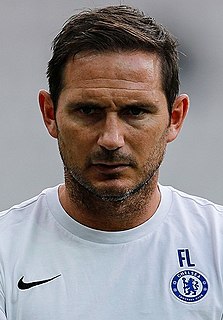A Quote by David Ignatius
A disaffected America can be drawn into a civilized - but disruptive - dialogue about political change and reformation.
Quote Topics
Related Quotes
The processes of secularization that followed in the wake of the Reformation continue to work themselves out in complicated ways, not only in Europe but also in North America. To make a very long and complex story short, the success of the Reformation combined with the persistence and renewal of Roman Catholicism in the 16th and 17th centuries made Christianity into an enduring, disruptive problem in new ways, layered on top of problems that already affected late medieval Christianity.
I confess to feeling continued ambivalence about political life, aware of its shortcomings and disappointments, but drawn back to it again and again because of its infinite promise. Justice can triumph, wrongs can be righted, and pain can be alleviated, if the right fix is found. The optimistic illusion that one can change the world is difficult to resist, especially when from time to time that illusion is sustained by even a hint of reality. Change does happen in the political process.
I'm looking for a second reformation. The first reformation of the church 500 years ago was about beliefs. This one is going to be about behavior. The first one was about creeds. This one is going to be about deeds. It is not going to be about what does the church believe, but about what is the church doing.
We have been making constant efforts, all the time, to start dialogue with the SLORC, but you know it takes two. We don't want a monologue. We would like a substantive political dialogue among the SLORC, political leaders including myself, and leaders of ethnic groups-exactly as stipulated in the U.N. General Assembly resolution on Burma.
America, like Britain before her, is now the great defender of the Status Quo. She has committed herself against revolution and radical change in the underdeveloped world because independent governments would destroy the world economic and political system, which assures the United States its disproportionate share of economic and political power ... America's preeminent wealth depends upon keeping things in the underdeveloped world much as they are, allowing change and modernization to proceed only in a controlled, orderly, and nonthreatening way.
Sustaining innovation is the lifeblood of any enterprise. It is the time when we capitalize upon, and recover from, all the disruptive change prior. Most of the operating profits in the world come from sustaining innovation. Much of the market capitalization gains, on the other hand, come from disruptive innovations.
When the Reformation became established, one of the things that was a question between Catholicism and the Reformation traditions was whether there was a hierarchy of being. If you look at Thomas Aquinas, for example, you have hierarchies of angels and all the rest of it, and hierarchies even of saints and then subsaints - people who aren't quite there, that sort of thing. The Reformation rejected all of that and created a new metaphysics, in effect, that is not hierarchical.
A revolution without a prior reformation would collapse or become a totalitarian tyranny. A reformation means that masses of our people have reached the point of disillusionment with past ways and values. They don't know what will work but they do know that the prevailing system is self-defeating, frustrating, and hopeless. They won't act for change but won't strongly oppose those who do. The time is then ripe for revolution







































